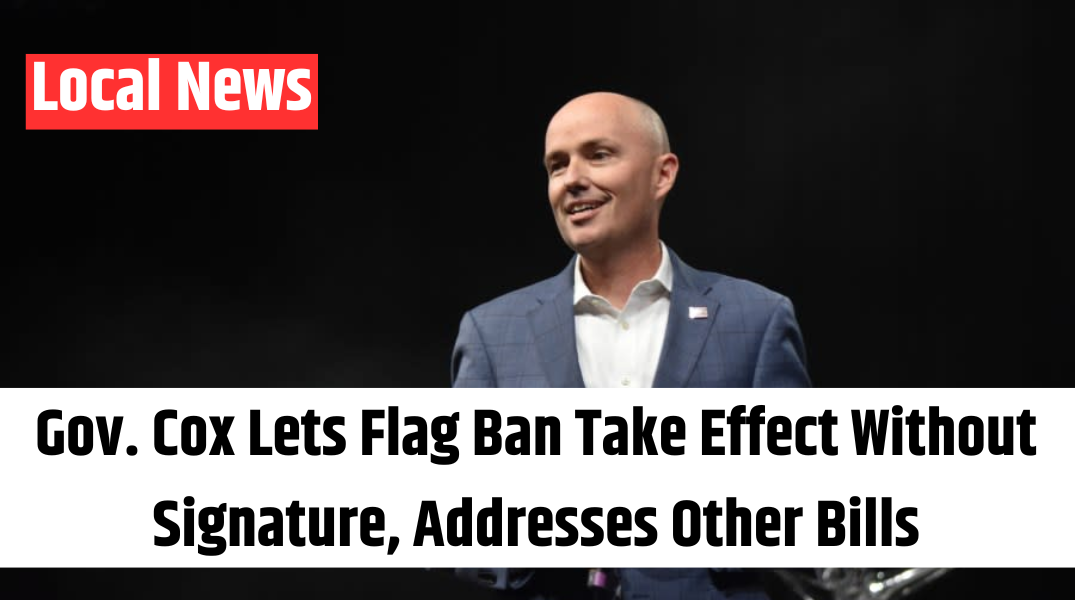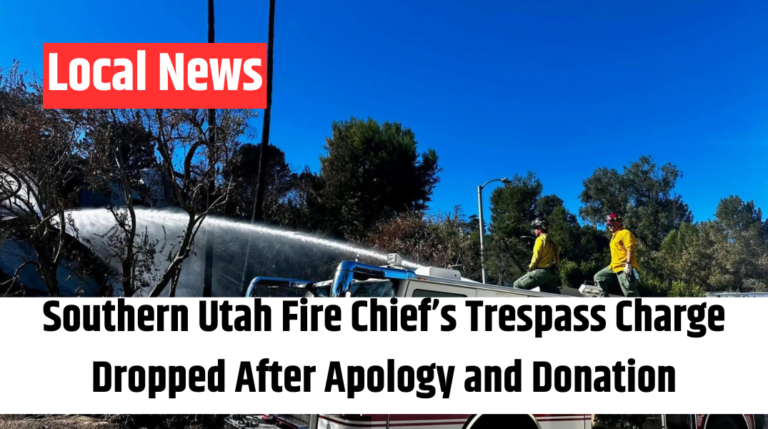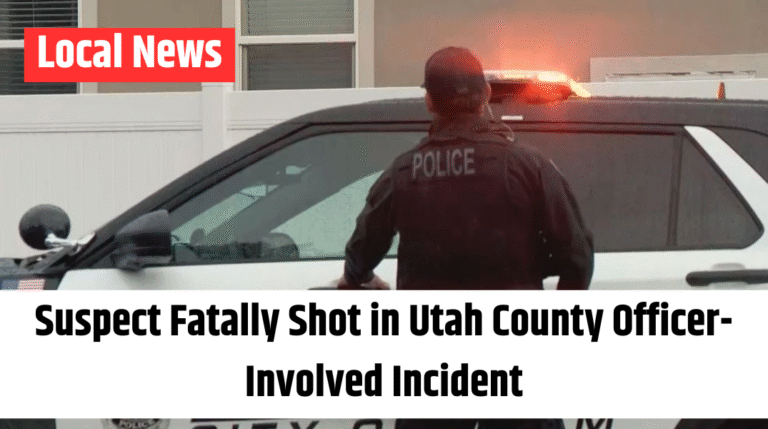
SALT LAKE CITY – Utah Governor Spencer Cox has finalized decisions on the remaining bills from the 2025 General Session, signing dozens into law while vetoing several and allowing a few to take effect without his signature, including the controversial flag display legislation.
Final Legislative Actions
On March 27, Governor Cox issued a late-night press release outlining his actions on 104 bills. Among them, 78 were signed into law, four were vetoed, two had line-item vetoes, and three took effect without his endorsement.
Flag Ban Bill Becomes Law Without Governor’s Signature
One of the most debated bills of the session, H.B. 77 – Flag Display Amendments, moved forward without Cox’s signature. He described it as “the most divisive bill” of the legislative session but acknowledged that it had enough support to override a potential veto.
In a letter to lawmakers, Cox expressed disappointment with the final version of the bill, stating that it failed to achieve its intended goal of keeping classrooms neutral from political debates. He acknowledged concerns from parents regarding political symbols in schools but believed that existing local policies were sufficient.
The governor also addressed the LGBTQ+ community, acknowledging the challenges presented by recent legislation. “I know that recent legislation has been difficult… but please know that I mean it sincerely when I say I am grateful you are part of our state,” he wrote.
The Utah Pride Center responded to the bill’s passage, stating that while they understood the political reality of its enactment, they were deeply saddened to see it become law.
Other Bills That Took Effect Without Signature
Cox also allowed two other bills to become law without his signature:
-
H.B. 353 – Criminal Code Amendments: Requires state agencies to review criminal statutes and propose reforms. Cox issued an executive order to create a task force for more comprehensive changes.
-
H.B. 69 – Medication Amendments: Extends federal 340B prescription drug discounts to for-profit contract pharmacies. The governor expressed concerns about whether the bill would effectively achieve its goal.
Governor’s Vetoes
Among the four bills Cox vetoed was S.B. 197 – Property Tax Amendments, which aimed to reform Utah’s property tax system. The governor cited concerns from county officials regarding administrative challenges and the impact on seniors.
Other vetoed bills included:
-
H.B. 306 – Precious Metals Amendments: Would have created a state-backed electronic payment system using precious metals. Cox questioned its feasibility and practicality.
-
H.B. 315 – Elected Official Vacancy Modification: Sought to determine municipal election ties through a “game of chance.” The governor argued that such a method could violate Utah’s constitutional ban on games of chance.
-
S.B. 106 – Utah-Ireland Trade Commission: Proposed a commission to enhance trade between Utah and Ireland. Cox believed existing state agencies were already fulfilling this role.
The governor also issued two line-item vetoes, removing funding from certain programs while allowing the broader bills to remain intact.
Bills Signed with Special Session Expected
Two bills were signed with an understanding that lawmakers would reconvene in a special session to address concerns:
-
H.B. 263 – Election Record Amendments: Imposes new transparency requirements for election procedures, which most county clerks opposed. Cox noted an agreement had been reached to amend the bill.
-
H.B. 356 – County Governance Amendments: Alters governance structures for certain counties, though Cox warned of unintended consequences that would need to be addressed.
Notable Signed Bills
Among the 78 bills Cox signed into law were several with statewide and national significance:
-
H.B. 81 – Fluoride Amendments: Bans the fluoridation of public water supplies, making Utah the first state to enact such a law.
-
H.B. 104 – Firearm Safety in Schools Amendments: Requires firearm safety education from kindergarten through 12th grade.
-
S.B. 277 – Government Records Management Amendments: Transfers oversight of public records request appeals to a governor-appointed official.
Governor Raises Concerns About Legislative Volume
In his closing remarks, Cox cautioned lawmakers about the increasing number of bills passed each session.
“I am worried about the additional burden this places on the public, state entities, and local governments,” he stated, urging a more thoughtful approach in the next legislative session.
This year, the Utah Legislature passed 582 bills. Cox signed 552 into law, vetoed six, and allowed three to take effect without his signature .




